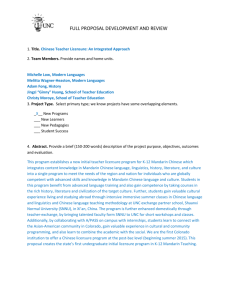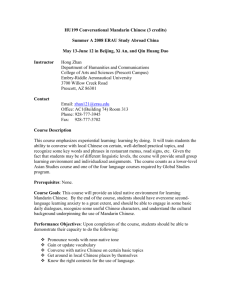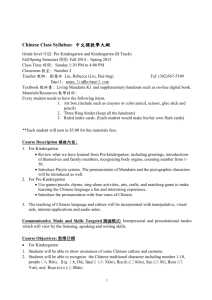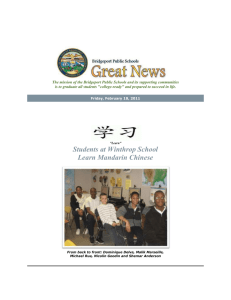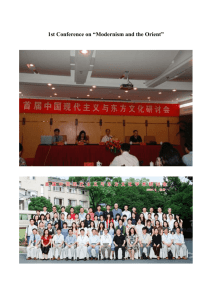Student Report: Study China Programme 2010
advertisement
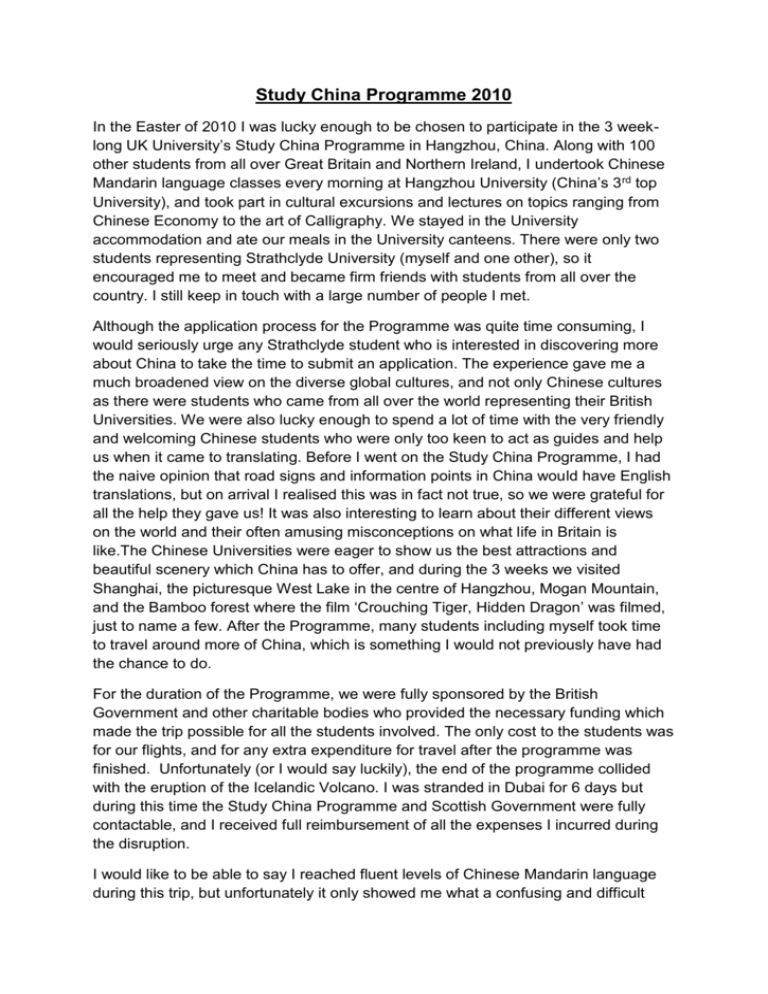
Study China Programme 2010 In the Easter of 2010 I was lucky enough to be chosen to participate in the 3 weeklong UK University’s Study China Programme in Hangzhou, China. Along with 100 other students from all over Great Britain and Northern Ireland, I undertook Chinese Mandarin language classes every morning at Hangzhou University (China’s 3 rd top University), and took part in cultural excursions and lectures on topics ranging from Chinese Economy to the art of Calligraphy. We stayed in the University accommodation and ate our meals in the University canteens. There were only two students representing Strathclyde University (myself and one other), so it encouraged me to meet and became firm friends with students from all over the country. I still keep in touch with a large number of people I met. Although the application process for the Programme was quite time consuming, I would seriously urge any Strathclyde student who is interested in discovering more about China to take the time to submit an application. The experience gave me a much broadened view on the diverse global cultures, and not only Chinese cultures as there were students who came from all over the world representing their British Universities. We were also lucky enough to spend a lot of time with the very friendly and welcoming Chinese students who were only too keen to act as guides and help us when it came to translating. Before I went on the Study China Programme, I had the naive opinion that road signs and information points in China would have English translations, but on arrival I realised this was in fact not true, so we were grateful for all the help they gave us! It was also interesting to learn about their different views on the world and their often amusing misconceptions on what life in Britain is like.The Chinese Universities were eager to show us the best attractions and beautiful scenery which China has to offer, and during the 3 weeks we visited Shanghai, the picturesque West Lake in the centre of Hangzhou, Mogan Mountain, and the Bamboo forest where the film ‘Crouching Tiger, Hidden Dragon’ was filmed, just to name a few. After the Programme, many students including myself took time to travel around more of China, which is something I would not previously have had the chance to do. For the duration of the Programme, we were fully sponsored by the British Government and other charitable bodies who provided the necessary funding which made the trip possible for all the students involved. The only cost to the students was for our flights, and for any extra expenditure for travel after the programme was finished. Unfortunately (or I would say luckily), the end of the programme collided with the eruption of the Icelandic Volcano. I was stranded in Dubai for 6 days but during this time the Study China Programme and Scottish Government were fully contactable, and I received full reimbursement of all the expenses I incurred during the disruption. I would like to be able to say I reached fluent levels of Chinese Mandarin language during this trip, but unfortunately it only showed me what a confusing and difficult language it is to learn. However, I did go away with a strong interest in Chinese affairs and a beginner’s foundation level of the language. I am so grateful I was chosen to participate on the Study China Programme, as it has not only given me a wider network of international friends, but it has also given me another aspect to enhance my CV and has become a useful talking point in job interviews and applications as it is widely recognised by potential employers. Ruth Thomson 3rd Year International Business and Modern Languages Student




